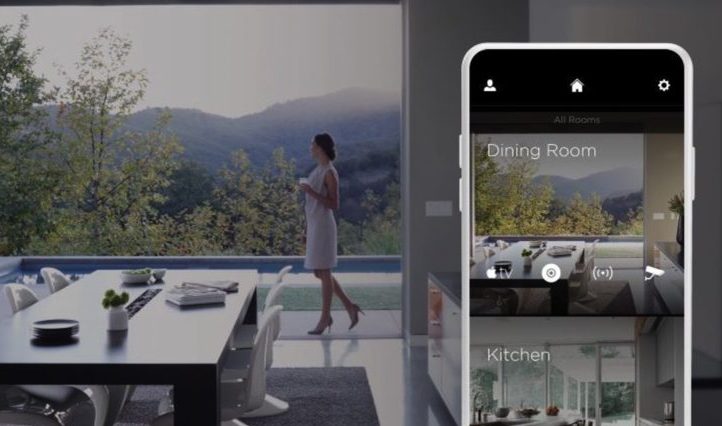ARTICLE CONTENTS
- Redefining How We Interact with Our Living Spaces.
- What is Whole-Home Automation?
- Key Components of Smart Home Automation
- Benefits of Whole-Home Automation
- The Future of Smart Home Technologies
- User Experience and Seamless Control
- Adapting to Future Needs
- Increasing Home Value with Automation
- Challenges of Implementing Smart Home Technology
- Conclusion: Embracing the Future of Modern Living
KEY TAKEAWAYS
- Effortless Control: Integrate and manage lighting, climate, security, and entertainment systems seamlessly with a single interface.
- Time-Saving Convenience: Automate daily routines to enhance comfort and free up valuable time.
- Energy Efficiency: Optimize appliance and utility usage to reduce energy consumption and save on utility bills.
- Enhanced Security: Enjoy peace of mind with remote monitoring, automated alerts, and advanced security features.
- Simplified Living: Transform home management with greater control and streamlined functionality, improving your quality of life.
Redefining How We Interact with Our Living Spaces.
Imagine a world where your home responds to your needs with a simple command or a gentle tap on your smartphone. This isn’t science fiction; it’s the reality of whole-home automation, a system designed to enhance your daily life seamlessly. As technology advances, smart home solutions are transforming the way we interact with our living spaces.
Whole-home automation integrates various devices—ranging from smart speakers to advanced security systems—creating a cohesive environment tailored to your lifestyle. These innovations provide a level of convenience and efficiency that can simplify everything from managing daily chores to ensuring safety for your loved ones. Understanding the core components and benefits of this technology is essential for anyone looking to embrace modern living.
In this article, we will explore how whole-home automation can streamline your life, from its fundamental components to its future trends. We’ll discuss its advantages, the challenges you might face during implementation, and how this technology can ultimately boost your home’s value. Join us on this journey to discover how seamless control can elevate your everyday experience.
What is Whole-Home Automation?
Whole-home automation is the integration of smart devices and technologies that allow homeowners to seamlessly control and monitor various systems within their residence. These systems encompass smart lighting, heating, smart security systems, and more, all manageable through smartphones, tablets, or even simple voice commands. The goal is to create an interconnected living environment that offers both convenience and efficiency.
Modern whole-home automation systems have transitioned from basic remote controls to advanced networks that are deeply embedded in daily life. By simplifying everyday tasks, these automation systems not only enhance comfort but also significantly improve energy management and smart home security. With the use of smart appliances, smart plugs, and motion sensors, homeowners can monitor and reduce energy usage, leading to lower energy bills and improved energy efficiency.
As luxury home living trends grow, more homeowners are embracing smart home technologies for their ability to streamline daily routines and improve quality of life. Enhanced security through smart locks and smart security systems further adds to the appeal, making whole-home automation an essential feature of modern smart homes. This evolution is transforming traditional houses into intelligent living spaces, offering effortless control and peace of mind.
Key Components of Smart Home Automation
Smart home automation systems encompass an array of devices designed to enhance convenience and efficiency within the home. Key components include smart locks, security cameras, thermostats, lighting systems, and a central control system for seamless management. These smart technologies utilize communication protocols like Wi-Fi and Bluetooth, enabling easy remote operation through mobile devices or voice commands.
Smart Speakers
Smart speakers act as the central hub for many smart home devices, facilitating hands-free control through voice commands. They enable homeowners to manage multiple devices like lights and thermostats remotely, enhancing everyday convenience. Integrated into broader smart home systems, smart speakers allow for automation and scheduling of daily tasks, streamlining a homeowner’s daily routine even when they’re away.
Advanced Security Measures
Advanced security systems in smart homes provide comprehensive protection and peace of mind. They include features like room-by-room surveillance, automated door locking, and alerts for approaching vehicles. These systems offer real-time monitoring and instant notifications of unusual activities, allowing for swift responses to potential threats, thus enhancing overall home security.
Energy-Saving Solutions
Smart home devices significantly reduce energy consumption by optimizing the use of electricity. Components like smart lighting and thermostats adjust based on occupancy and time of day, contributing to energy savings. Homes using these technologies can cut energy usage by up to 30%, saving money on bills and benefiting the environment through a reduced carbon footprint.
Benefits of Whole-Home Automation
Whole-home automation transforms luxury home living by allowing centralized control of various smart home technologies from a single interface. This effortless control simplifies daily tasks, enhances user experience, and brings a new level of convenience into daily life. By integrating smart home devices into a cohesive system, homeowners enjoy a seamless interaction between different functionalities, improving quality of life significantly.
Convenience and Comfort
Integrated smart home systems allow users to manage multiple home functions from a simple, user-friendly interface, reducing everyday stress. One-touch controls make it easy to adjust lighting, temperature, and security settings, creating a tailored home environment that aligns with individual lifestyle needs. Voice control compatibility with voice assistants like Amazon Alexa further improves convenience, enabling hands-free operation of devices and simplifying multitasking.
Energy Efficiency
Smart home automation can lead to energy savings of up to 30-40% by optimizing heating, cooling, and lighting based on real-time data, effectively reducing energy bills and consumption. Smart thermostats and smart lighting systems adjust to occupancy and time of day, helping prevent energy waste. These technologies not only lower utility costs but also decrease household carbon emissions, making smart homes both economically and environmentally beneficial.
Enhanced Security
Smart security systems offer real-time monitoring and alerts, ensuring homeowners are always informed and in control no matter where they are. With features like smart doorbells and motion sensors, you can see and communicate with visitors remotely, adding an extra layer of security. Advanced systems monitor various aspects of home safety, from fire to break-ins, directly from a mobile device, providing peace of mind and reducing the risk of oversight.
The Future of Smart Home Technologies
Smart home technology is revolutionizing the way we interact with our living spaces, allowing centralized control of essential systems like lighting, heating, and security. These advancements simplify daily life, granting effortless control over home environments and enhancing energy efficiency. This leads to reduced utility bills and addresses concerns about high energy consumption, improving overall quality of life. As the smart home market evolves, emerging trends like cloud-managed systems and sleek security features ensure these technologies blend seamlessly with your home’s design.
Integrated Smart Devices
Integration is at the heart of smart home systems. Many devices from different brands can be harmonized into a single platform, offering smoother functionality and improved user experience. Smart locks and security systems exemplify this by enabling remote management, access control, and real-time monitoring via mobile devices. This synergy allows for unique innovations, like smart lights reacting to motion detected by security cameras, enhancing security and energy efficiency through coordinated operations.
Luxury Living Innovations
In luxury and ultra-luxury homes, smart innovations are becoming essential. These automation systems simplify life by enabling control over environments through smartphones, even remotely. This is particularly appealing for those who value efficiency and security. Homeowners can delegate up to 50,000 tasks a year to smart home devices, such as adjusting lighting or managing pool temperatures, saving time and effort. Voice control technology further enhances this experience, with a significant portion of smart home owners expressing interest in streamlined voice-assisted management, perfectly suited for a luxury lifestyle.
User Experience and Seamless Control
Whole-home automation transforms luxury home living by providing a centralized control system that enhances the user experience. It allows homeowners to manage various smart devices and systems, such as smart lighting and smart security systems, through a single interface. This effortless control ensures that entertainment systems, including Smart TVs and audio systems, can be managed seamlessly. Compatible with voice assistants like Amazon Alexa, these systems offer convenient hands-free control, improving accessibility and user interaction across the home.
Intuitive Interfaces
Smart home systems are equipped with intuitive interfaces that simplify daily life. The user-friendly design of platforms like Nice Home Management enables control of smart home devices from one spot. The Loxone Smart Home app offers comprehensive access via mobile devices, ensuring seamless operation. Touch switches from Next Gen Smart Homes maximize functionality while reducing complexity, and voice-activated commands further enhance accessibility, benefiting users, especially those with mobility challenges.
Customization Options
Smart home automation offers extensive customization options tailored to individual lifestyles and daily routines. Users can create scenes that adjust lighting, temperature, and audio with a single command, enhancing comfort and ambiance. These systems support routines for different times of day, such as dimming lights in the evening or scheduling appliances in the morning. AI and IoT technologies personalizing interactions predict optimal settings, making home management more intuitive. Integrated systems can tailor environments for specific activities, ensuring the home ambience aligns with homeowner preferences.
Adapting to Future Needs
Whole-home automation can significantly simplify daily life by adapting to future technological advancements. Smart home technologies, designed for seamless integration, ensure that your home remains compatible with new developments, making them a future-proof investment. As technology evolves, next-generation smart homes will harness artificial intelligence to learn routines and anticipate user needs, thus enhancing luxury home living effortlessly.
Smart technologies in homes are addressing the critical need for maintaining healthy environments. Innovations in microclimate control systems ensure air quality and comfort, adapting to both environmental challenges and user preferences. As these smart home systems evolve, they can optimize energy consumption by recognizing irregularities, leading to reduced energy costs and improved quality of life.
Scalability of Smart Systems
Smart home automation systems offer scalability, allowing homeowners to start small with basic features and expand as needs grow. This ensures that smart home devices can evolve alongside lifestyle changes, offering a tailored experience that enhances daily routines. Enhanced security is another key benefit, with systems learning user habits to adjust operations automatically, reducing energy waste and lowering bills.
Despite challenges with integrating disparate smart devices, many systems now offer remote control capabilities via mobile devices. This means homeowners can manage smart lighting systems, climate controls, and other functionalities effortlessly, regardless of location. By allowing simple voice commands and mobile integration, smart home automation fosters a seamless daily life.
Upgrading and Compatibility
Integrated smart home systems facilitate easy upgrades, allowing users to add new smart devices without compatibility concerns. Built on open platforms utilizing industry-standard protocols, these systems ensure smooth integration with various manufacturers’ devices. This future-proof nature is crucial for embracing the latest smart technologies, making upgrades hassle-free.
Smart home systems enable efficient operation and integration through Wi-Fi or Bluetooth communication among automated devices, such as smart lighting and smart appliances. Centralized management platforms simplify user experiences, offering coherent control over all devices. As luxury smart homes expand, this compatibility ensures enhanced security and optimized energy usage, all contributing to an elevated standard of living.
Increasing Home Value with Automation
Investing in smart home technologies not only enhances daily life but also boosts your property’s value. Buyers today are drawn to luxury home living and appreciate the effortless control smart devices offer. An integrated smart home system simplifies daily tasks, allowing remote control of smart lighting, smart appliances, and smart security systems from a mobile device.
Smart homes with advanced features are particularly appealing to tech-savvy buyers. They offer energy efficiency and reduced energy consumption, which are key considerations for environmentally conscious purchasers. Smart home automation ensures seamless management of energy usage, potentially lowering energy bills and energy costs.
Furthermore, smart technologies provide enhanced security with smart locks and smart security systems, making homes safer and increasingly attractive in the market. The adaptability of these systems also means your home remains current, accommodating the latest technological advancements. By upgrading your property with smart devices, you not only elevate your quality of life but also position your home as a desirable and future-proof investment.
Challenges of Implementing Smart Home Technology
Smart home technology is appealing, but its implementation can be complex. Fragmentation in the market often leads to challenges in connecting disparate systems, with interoperability being a significant consumer barrier. Many users face poor manageability, as handling multiple smart home devices can be overwhelming and complex.
Technical Issues and Maintenance
Integrating devices from different vendors can result in limited functionality and unreliable service, as many manufacturers develop incompatible systems. Professional smart home devices offer more sophistication compared to consumer alternatives, yet they still face potential technical problems and require ongoing maintenance. Robust network security measures are essential to mitigate security risks and bugs in smart technologies.
Conclusion: Embracing the Future of Modern Living
Embracing whole-home automation simplifies daily life by offering effortless control over smart home devices, enhancing convenience and efficiency. With features like smart lighting and smart thermostats, homeowners can optimize energy usage and reduce energy costs. These smart technologies not only modernize living spaces but also improve quality of life by providing seamless integration of various devices.
Luxury smart homes benefit from advanced features such as smart locks and smart security systems, offering enhanced security and peace of mind. AI-enabled devices further transform living spaces with personalized interactions, predicting needs and adapting to daily routines. This connectivity supports sustainability efforts, with homeowners increasingly valuing eco-friendly attributes.
As smart home systems continue to evolve, they promise a more interconnected and comfortable living environment. Embracing these technologies is not just about luxury home living; it’s about crafting a smarter, more efficient home that aligns with modern lifestyles and environmental consciousness. The combination of remote control capabilities and advanced smart home automation makes life more manageable and enriching, paving the way for a future where daily tasks are streamlined and living spaces are inviting and secure.





